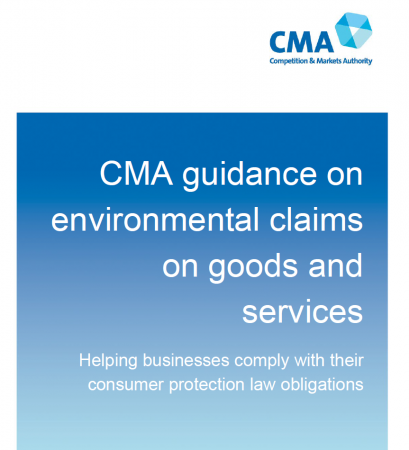ACTIONS
- Protect and safeguard cultural and natural heritage
- Learning and educational opportunities
- Cultural participation/social inclusion
- Sustainable tourism
- Support research
- Employment (recruiting, training, safety)
- Energy consumption, greenhouse gas emissions
- Waste management and reduction
- Transport (forms of, energy use)
- Commercial activities including copyright and IP
- Governance and management
- Security, disaster preparedness, risk reduction
- External partnerships and collaborations
- Toolkit/framework/roadmap
- Video
Green Claims Code: Making Environmental Claims on Goods or Services
- Competition and Markets Authority, UK Government
“The purpose of this guidance is to help businesses understand and comply with their existing obligations under consumer protection law when making environmental claims.
This guidance sets out principles which are designed to help businesses comply with the law. It explains each of these principles. It gives examples of how each of them applies and more detailed case studies where multiple principles apply. The guidance also sets out the legal framework on which these principles are based.
The guidance is not an exhaustive guide to making environmental claims. It covers areas the CMA considers most likely to be relevant and more likely to be of concern to enforcement authorities, but does not cover every situation in which an infringement may occur.
While the guidance is designed to help businesses, it is not legal advice. Responsibility for complying with the law remains with businesses themselves.”
Avaiable in
- English
Actions
SDGs LINKAGES
The resource is most closely linked to SDG 12.6 (adopt sustainable practices and reporting), 16.6 (effective, accountable and transparent institutions), 16.10 (protect the right to information and fundamental freedoms) that can also relate to 12.8 (information and awareness for lifestyles in harmony with nature and sustainable development) and 16.B (laws and policies that support sustainable development, in this case relating to consumer protection laws). Full and effective information and reporting can help drive action that supports a range of SDG targets, for example sustainable use of natural resources (SDG 12.2), SDG 12.7 (sustainable procurement), and SDG 13.3 (contributing to climate action).
Click on the SDG Target to discover Our Collections Matter indicators
-
Our Collections Matter indicators:
- Reduction of material footprint in terms of reductions in consumption of biomass, fossil fuels, metal ores and non-metal ores.
-
Our Collections Matter indicators:
- Clear visions, strategies and plans in place for all aspects of sustainability – environmental, social and economic (people, planet, prosperity)- across all areas of activity.
- Visions, strategies and plans relating to sustainability to be publicly available and incorporated into planning documents.
- Commitments to be in line with local, regional, national and/or international targets and ambitions.
- Incorporation of sustainability into reporting for funders and other stakeholders, including the public. Reporting to include commitments and progress towards targets.
-
Our Collections Matter indicators:
- Incorporation of sustainability considerations into procurement, in terms of advertisement and invitation to tender, contracts, and selection criteria for suppliers.
-
Our Collections Matter indicators:
- Extent to which (i) global citizenship education and (ii) education for sustainable development (including climate change education) are mainstreamed in (a) national education policies; (b) curricula; (c) teacher education; and (d) student assessment.
- Extent to which global citizenship education and education for sustainable development (including climate change education) are mainstreamed in formal, informal and non-formal education programmes and activities drawing on and related to collections.
-
Our Collections Matter indicators:
- Plans in place to enhance positive contributions to addressing climate change through use of collections. Plans in place to ensure collections, collections institutions and broader society can adapt effectively to climate change.
- Plans in place for effective education and awareness raising on climate change mitigation, adaptation, impact reduction and early warning.
- Plans in place to reduce negative contributions of collections-related functions, e.g. measuring greenhouse emissions with plans and targets in place to reduce them.
-
Our Collections Matter indicators:
- Proportion of the population [audience/users/non-users] satisfied with their last experience of public services.
- Access to information, and accountability policies and mechanisms, in place.
- Effective institutional arrangements, both for own working and for working in partnership with other sectors, in place.
- Plans and arrangements in place for extraordinary circumstances such as natural and human-caused disasters.
- Effective arrangements in place to fulfil legal and social obligations and responsibilities.
- Effective arrangements in place for transparent communication and reporting of institutional performance.
- Effective arrangements in place for transparent decision-making and accountability.
-
Our Collections Matter indicators:
- Adopt and implement constitutional, statutory and/or policy guarantees for public access to information.
- Plans in place, and plans implemented to enhance public access to information relating to collections.
- Plans in place, and plans implemented to support fundamental freedoms, in line with human rights, national and international agreements and legislation.
- Plans and procedures in place for public access to information relating to the operation and management of collections-based institutions.
- Complaint mechanism in place for public to use where public access to information and fundamental freedoms not supported or fulfilled.
-
Our Collections Matter indicators:
- Proportion of population [audience/users/non-users] reporting having personally felt discriminated against or harassed in the previous 12 months on the basis of a ground of discrimination prohibited under international human rights law.
- Number and proportion of policies that incorporate sustainable development considerations, in the full sense of recognizing all three of social, economic and environmental considerations.

